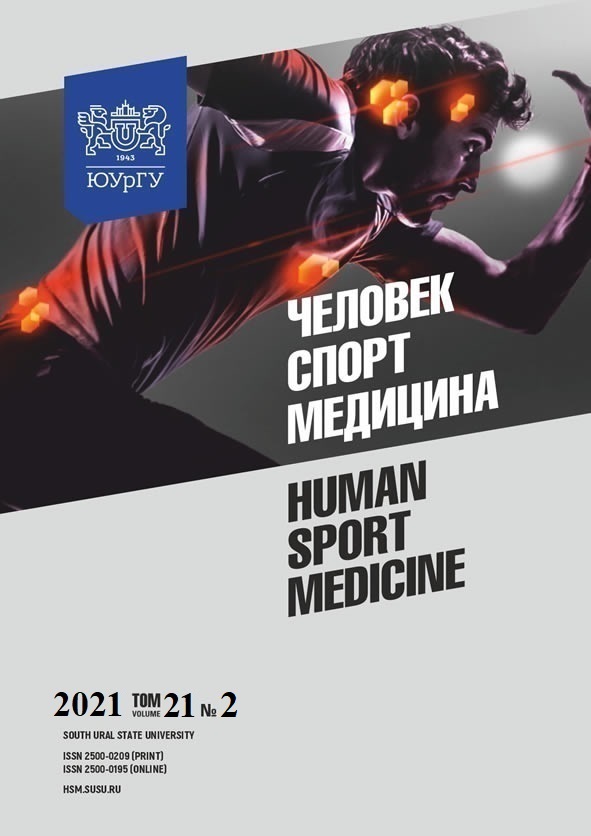PHYSIOLOGICAL JUSTIFICATION OF EXERCISE ADJUSTMENT IN PHYSICAL EDUCATION CLASSES FOR BOYS AGED 8–10
Abstract
Aim. The paper aims to optimize the functional state of boys with Type I, II, and IV of autonomic regulation by means of typologically determined training activity. Materials and methods. The study was conducted in Togliatti from September 2019 to May 2020 on the premises of school No. 90. 30 boys of the experimental group (EG) and 30 boys of the control group (CG) aged 8–10 were examined. Students from both groups attended PE classes three times a week. Classes in EG included exercises for children with different types of autonomic regulation. Classes in CG were conducted according to the standard school program. Type I students were offered exercises aimed at developing physical fitness by means of exercise adjustment. Type II students performed gymnastic and stretching exercises for increasing flexibility. Type III students had the optimal type of regulation and adapted well to the program proposed within the Federal State Educational Standard for Physical Education, therefore, PE classes were conducted according to generally accepted PE programs. Type IV students were offered team sports and relay races. The diagnostic technique was based on the use of the Varicard 2.51 hardware-software system. Results. The article provides a physiological justification for the use of typologically determined training activities for boys with different types of autonomic regulation. It was found that special exercises for children with different types of autonomic regulation contributed to the redistribution of Type I, II, IV students to a more balanced Type III, which confirmed the possibility of improving PE classes at school. Conclusion. The research confirmed the need to take into account different types of autonomic regulation of students when choosing physical activity for PE classes in junior school.
References
References on translit
Copyright (c) 2021 Human. Sport. Medicine

This work is licensed under a Creative Commons Attribution-NonCommercial-NoDerivatives 4.0 International License.















